Expect to hear more about Harvest Energy in the coming months and years. Its goal is to double its dealer business over the next five years, growing 20% every 12 months. It also plans to grow its company owned network, both operated and unmanned.
The reason for such ambitions is that the brand is now owned by the State Oil Group, which describes itself as one of the leading and fastest-growing independent importers and suppliers of automotive and industrial fuels in the UK. Based in London, it has trading offices in Switzerland, Singapore and Texas. Its wholesale business trades as Prax Petroleum.
In 2014 the group acquired its first fuel storage terminal at Cardiff in Wales; and two years later it bought Shell UK’s former terminal in Jarrow in the North East. It considers the purchase to be another milestone in the group’s ambition to become a leading global oil distribution business supported by a portfolio of high-quality storage assets.
In between those two events, in June 2015, the group acquired Harvest Energy, which has become the face of Prax Petroleum. Part of the acquisition included Harvest Energy’s three unmanned locations, which trade under the brand name Breeze. Prax Petroleum had nine company owned forecourts, which were immediately rebranded as Harvest Energy and have already shown a 19% increase year-on-year.
"The biggest thing about being owned by Prax Petroleum is that it gives us our own security of supply," explains Ian Woodcock, Harvest Energy’s retail director, whose background includes nearly 30 years with Total, and whose responsibility it is to push Harvest Energy as a great alternative to the majors.
"Supply is all within our control. Not only do we own terminals, we own tanks and trucks. We own all the facilities to deliver the entire logistical journey of product coming from across the ocean right through to the forecourt.
"The strength of our company is our trading division, which trades 24-hours across the globe. That gives us a great start in terms of our cost price. There are less than 70 people in the company, so despite its size in terms of its turnover, it’s quite a lean organisation."
While growth in dealer numbers has been somewhat static in recent years they currently stand at 105 Woodcock is confident the company will achieve its targets: "We have continued to develop our dealer offer with the reassurance of continued supply, competitive pricing and a clean, fresh brand image built on a foundation of a simple, clear offer," he stresses.
Woodcock sees transparency of the dealer contract as a clear point of difference for the Harvest Energy brand: "The price you see on the front page of the contract is the price you see on the back page of the contract.
"There’s nothing there that’s hidden, that’s going to surprise you, that’s a dollar premium, or a winter premium or a small-load premium. Nothing that will confuse or upset the dealer. The average man in the street will not know how many litres of diesel or unleaded there are in a tonne. When we say Platts, it’s Platts plus an add-on. The dealers can see what that add-on consists of. Nothing else gets added. Everything is about being as transparent as we can possibly be, so that the dealer can plan the next five years and not have to worry about changing costs and margins.
"We’ve always been very transparent and have probably one of the thinnest contracts in the industry. Our contract is 16 pages long as opposed to up to 80 pages for certain oil majors. We’re trying to keep everything as simple as possible for our dealers and for ourselves."
Beyond the competitiveness and simplicity of the contract, Woodcock says the Harvest Energy package is about trying to add services as opposed to cost to the dealer: "If dealers want to see their business manager every three weeks or every three months, they can. If they want help with their wet stock, we’ve developed a system where we’re piggy-backing on the Fairbanks Station Manager 365 portal. Branded as Harvest Energy, it gives them the ability to not just look after the wet stock underground, but it also allows them to look after their margin and all the facilities that the system gives them."
He says wet-stock management and controlling margin can be difficult for dealers who have many priorities in their day. Using the application takes the guesswork out of managing wet stock by continually updating dealers on the optimum price they need to sell at to maintain their target margin, as well as looking after their stockholding underground.
Another element to the Harvest Energy package is annual maintenance. "Our branding is very bright and white," enthuses Woodcock. "One of the advantages is that it always looks nice and white and fresh. But one of the disadvantages is that it can get dirty fairly quickly. So every year we go round the network and clean up and repair anything we’ve branded or installed ourselves such as pumps, stanchions, canopy fascia, price units and shopfront. We will also clean the forecourt area. We want our brand to stand out from the rest. Our branding is important to us therefore we look after it. It’s all part of the package, and a resource for our smaller dealers."
In terms of attracting dealers, there is no size restriction. Average dealer volume is 2.4mlpa, but it has attracted dealer groups such as Cornwall Garages, which has been so impressed with the service, it has recently re-signed 16 sites.
"The same service that we give to a smaller site in terms of experience and resource really works for the bigger sites as well," says Woodcock. "They have people with knowledge in the market they can turn to for advice and information."
Location is not a problem either, according to Woodcock, with tanks in lots of locations that service the group’s commercial customers, from Falkirk in Scotland down to the bottom end of Redruth in Cornwall.
"We can give a very competitive price that allows someone who wants to drive footfall to their forecourt, shop and car wash, but doesn’t necessarily want to go the route of own brand or minor brand Harvest is a well-known national brand."
Growth of the brand will not just come through dealers, but through expanding the company owned network: "We want more holes to put our product into," says Woodcock. "If we can have more serviceable locations in the UK we can drive our trading price down even further. Yes it’s recreating the old oil company format, but without the refinery to drag you down!"
Over the next 18 months Woodcock is hopeful of having another 10 unmanned sites: "The development work is done. We’ve engineered a lot of the cost out of the format the first one we built was about proving the concept worked. It’s now about replicating the format, but not the cost. There are sites around that warrant just fuel only, as we have proved with our unmanned site in Swindon which is in the middle of the town centre."
Harvest Energy will be exploring every format unmanned, small dealer, dealer group and company owned to boost its national presence. "We will measure success through feedback from our dealers; re-signs; new signings; and the number of flagpoles out there that we own ourselves," says Woodcock, but he know it won’t be easy. "It’s a very competitive market. Everybody is targeting dealers. Our message is that we may not be Champions League, but we will certainly give people a run for their money in the Cup!"
golden milestone for Cornwall garage group
Cornwall Garage Group is celebrating 50 years in the fuel retailing business. Founder John Murray (pictured far right with his son Grant), who set up the Buckinghamshire-based company in 1966, was recently presented with a commemorative trophy (pictured below) by Harvest Energy. The group has recently re-signed 16 sites with the brand. Ninety-three year-old John was a renowned former professional ice hockey player and coach, who was captain of the nationl team, and played in the 1948 Olympics. He first got into the fuel retailing business in his 40s, and following a three-year partnership during which "he learnt to borrow money", bought his first garage on his own in 1966 at Hatch End in Middlesex, called Cornwall Garage. At its peak the group had 42 sites, but now has 17 and is keen to buy more. As managing director, John still has a big role in the business: "It’s a cyclical trade I’ve seen it all before," he says. "Success is down to a competitive fuel deal, and keeping overheads down."























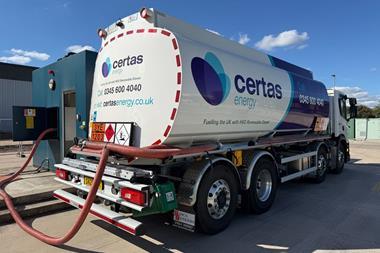
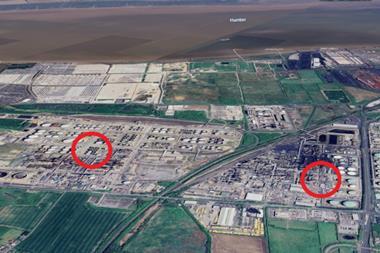
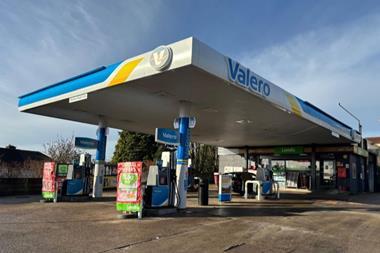
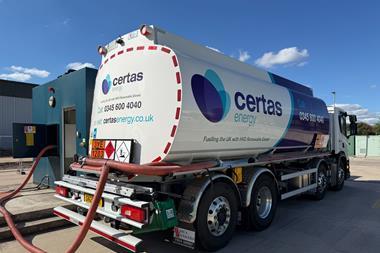
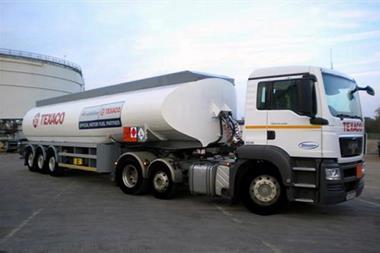

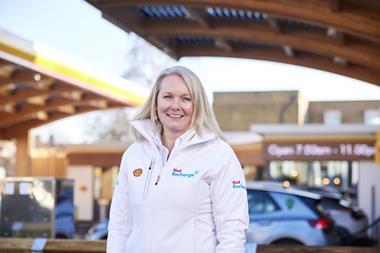


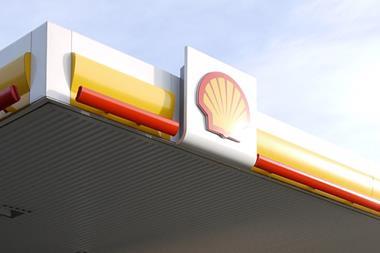
No comments yet